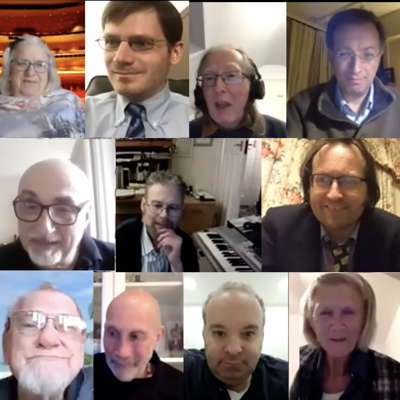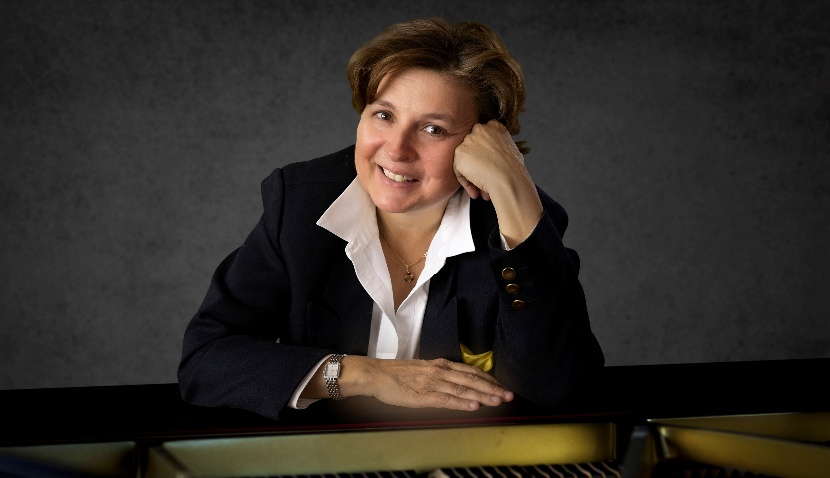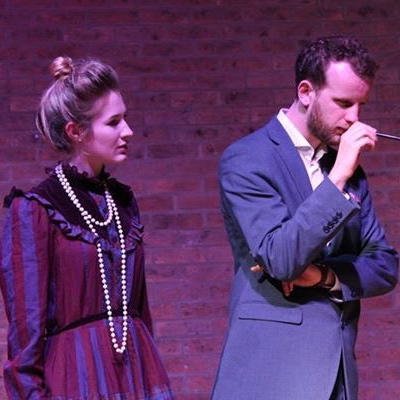 VIDEO PODCAST: James Ross and Eric Fraad discuss Streaming, Downloads and CDs with Maria Nockin, Mary Mogil, David Arditti, Gerald Fenech, John Daleiden, John Dante Prevedini, Lucas Ball and Stephen Francis Vasta.
VIDEO PODCAST: James Ross and Eric Fraad discuss Streaming, Downloads and CDs with Maria Nockin, Mary Mogil, David Arditti, Gerald Fenech, John Daleiden, John Dante Prevedini, Lucas Ball and Stephen Francis Vasta.
EXCELLENCE IS NON-NEGOTIABLE

SANDRINE ERDELY-SAYO, in her first article for Classical Music Daily, gives some advice to the younger generation
Leading a classical music festival as an artistic director presents unique challenges, especially in balancing artistic vision with logistical realities and external pressures. Here is a word of advice for the young generation who might, one day, take over such a big task in classical music.
The Challenges of Leadership as Artistic Director
Leadership in the arts is a delicate balance between upholding excellence and navigating external pressures. Over the past ten years as artistic director of Piano on the Rocks International Festival in Sedona, Arizona, I've faced exhilarating triumphs and formidable challenges, particularly when making artistic choices that define the festival's identity. Maintaining the highest artistic standard is essential for an artistic director in classical music. Selecting the best musicians ensures that the performances are technically brilliant, emotionally compelling, and true to the artistic vision of the ensemble.

Sandrine Erdely-Sayo. Photo © Gary Glenn
Striving for Excellence
The artistic director sets the tone for the organization by recruiting musicians who possess outstanding technical skill, interpretative depth, and a strong sense of ensemble playing. High-caliber musicians elevate the overall quality of performances and inspire others to reach their best. Artistic direction demands an uncompromising pursuit of quality. Every decision - from selecting musicians and repertoire to shaping the festival's overarching theme - requires a vision that reflects the highest artistic standards. Ensuring that every aspect meets this level of quality means meticulous planning, critical judgment, and a commitment to staying true to the festival's mission.
Navigating External Influence
One of the most complex challenges is handling input from individuals who lack deep musical expertise but feel entitled to dictate artistic decisions. Whether it's sponsors, administrative teams, or even well-meaning audiences, there's often pressure to compromise or shift directions to meet external expectations. Some may suggest programming changes based on commercial appeal rather than artistic merit, while others propose logistical shortcuts that could impact the performance quality.
The Danger of Compromise
The moment an artist or artistic director starts bending to external pressures - especially from those without deep musical knowledge - the festival risks losing its identity. Artistic choices should be driven by vision, expertise, and passion, not by trends or commercial interests dictated by outsiders. When well-intentioned but uninformed voices push for programming that doesn't align with the artistic integrity of a Festival, the danger is dilution - where excellence gives way to mediocrity. Lowering artistic standards for convenience, whether financial or logistical, can have long-term consequences. Audiences and critics recognize quality, and maintaining high-level musicianship ensures the ensemble's reputation remains strong.
The Confidence to Say No
Rejecting external influence requires conviction. Sponsors, administrators, or even audience members may believe they understand what's best for the festival, but artistic leadership demands the ability to filter out noise and stand firm on decisions. It's not about disregarding feedback but about distinguishing between valuable insight and misguided opinions. True leadership means having the courage to say no when necessary - even when the pressure is intense.
The Importance of Expertise
Music is not something that can be dictated by people who lack deep understanding. There is a reason artists dedicate their lives to mastering their craft - because true excellence in music cannot be achieved without years of study, experience, and intuition. When outsiders attempt to impose their opinions on artistic programming or execution, they often fail to grasp the nuances that make performances extraordinary. Trusting one's expertise over external noise is not arrogance - it is a necessary commitment to excellence.
Communicating Expectations
Setting clear artistic expectations ensures that every musician understands the commitment required. Establishing an environment of mutual respect and high standards fosters excellence without unnecessary pressure.
Budget constraints, venue limitations, and unforeseen logistical issues further complicate the role of an artistic director. While the ideal scenario allows for boundless creativity, real-world constraints require adaptability without sacrificing artistic integrity. Leadership means making difficult decisions - knowing when to push boundaries and when to compromise while ensuring the festival retains its prestige and artistic purpose.

Poster for Piano on the Rocks 2025
- the tenth anniversary festival
Through years of curating Piano on the Rocks, I've learned that leadership in the arts requires both resilience and diplomacy. Listening to different perspectives is valuable, but maintaining authority over artistic decisions is crucial to preserving the identity of the festival. Success lies in staying true to a carefully cultivated artistic vision while navigating the delicate interplay between creativity and practicality.
In the world of classical music, excellence is not just a goal - it's a necessity. By consistently selecting top-tier musicians and nurturing their growth, an artistic director ensures that the ensemble remains a leading force in the field.
Copyright © 12 June 2025
Sandrine Erdely-Sayo,
Arizona, USA



